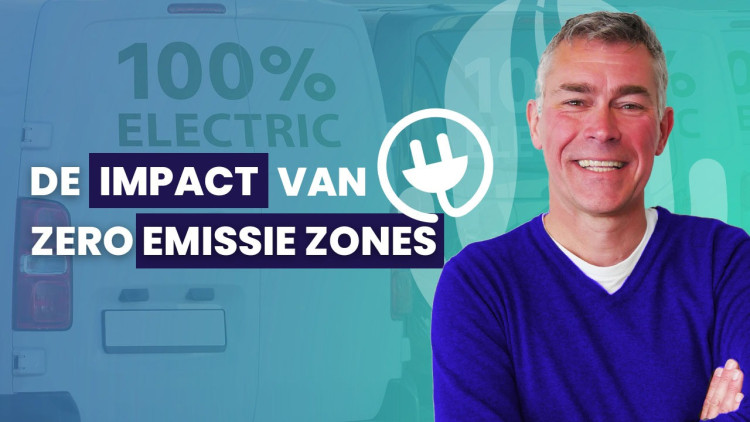The Need for Innovation
In the transport sector, innovation is no longer a luxury, but a necessity. With increasing pressure on companies to operate more sustainably, the focus is increasingly on zero-emission vehicles. Johnny Nijenhuis, self-proclaimed ‘e-truck nerd’, brings this to the fore with his passion and knowledge about electric trucks.
Electric Trucks: More than a Trend
Johnny's talk reveals a deep insight into the benefits and challenges of electric trucks. Not only are these vehicles better for the environment by reducing CO2 emissions, but they also offer economic benefits. Think savings on fuel costs and maintenance, and an improved driving experience for drivers. But, as Johnny stresses, the technology and infrastructure for electric transport are still in their infancy.
The Cost: Electric Truck vs Diesel Truck
A crucial consideration when switching to electric trucks is the price tag. Although the initial purchase cost of an electric truck is higher than that of a diesel truck - think of a difference that can run into tens of thousands of euros - it is essential to look beyond just the purchase price.
Total Cost of Ownership (TCO)
Total Cost of Ownership (TCO) is a calculation that takes into account all costs over the entire lifetime of a vehicle, from purchase to maintenance and operational costs. For electric trucks, despite the higher purchase price, TCO analysis often shows that they are more advantageous in the long run. This is due to lower fuel costs, less maintenance and government incentives for sustainable means of transport.
Range and battery packs
A much-discussed issue with electric vehicles is their range. The development of battery packs has not stood still in recent years. More modern electric trucks can now cover hundreds of kilometres on a single charge, a significant improvement over earlier models. This opens up new opportunities for long-distance transport and significantly reduces ‘range anxiety’.
Further Benefits of Electric Trucks
In addition to the economic and environmental benefits, electric trucks bring other significant advantages:
- Improved driving experience through reduced vibration and noise.
- Reduced local air pollution, contributing to a healthier living environment.
- Innovative designs possible due to more flexible placement of components.
- Regenerative braking recovers energy, increasing efficiency.
- Reduction of CO2 emissions contributes to a greener planet.
Change in Design
The move to electric propulsion offers manufacturers an opportunity to reshape trucks. Without the need for a large diesel engine, the cabin can be designed lower and more aerodynamic, contributing to improved driver visibility and safety.
Weight difference and payload capacity
Although electric trucks are heavier than their diesel counterparts, mainly due to the battery pack, in practice, only 20-30% of trips in Europe are limited by the maximum weight. Moreover, some countries offer exemptions for electric trucks, allowing them to charge more than diesel trucks.
Consumption: electric vs diesel
The consumption of an electric truck compared to a diesel truck is a crucial factor when considering electrification. Electric trucks have the potential to ‘cost’ significantly less per kilometre, given that electricity is generally cheaper than diesel. Although exact figures vary depending on the model and usage, it is clear that operating costs per kilometre are lower for electric trucks, especially if they are charged during off-peak hours or with green electricity.
Average Distances in the Netherlands
The average distance travelled by a truck in the Netherlands strongly depends on the type of work. Distribution work in urban areas typically has shorter journeys than international transport. With the current range of electric trucks, many of these daily routes can already be done fully electrically.
Charging During Breaks
A practical strategy for managing electric trucks is to utilise mandatory rest and break times for drivers to charge the vehicles. This makes it possible to maximise vehicle operational time without sacrificing required driver rest.
Tips for Entrepreneurs
For entrepreneurs considering the move to electric transport, here are some crucial tips:
- Start with a Pilot: Start with one or a small number of electric trucks to gain experience without immediately making a large financial commitment.
- Analyse your Routes: Identify the routes most suitable for electric vehicles based on distance and available charging infrastructure.
- Research Subsidies: Explore what subsidies and tax breaks are available to make investment in electric trucks more attractive.
- Engage your Team: Provide training and raise awareness among your drivers and planners about working with electric vehicles.
- Plan for Infrastructure: Invest in or gain access to charging infrastructure that suits your operational needs.
By carefully considering these aspects, entrepreneurs in the logistics sector can navigate the transition to electric transport smoothly and cost-effectively.
The Future is Now
Johnny's story in the Logistics Podcast is a wake-up call for everyone in the transport sector. The future of logistics is electric, and it is time to embrace this change. Start exploring electric transport today. Find out how RouteLogic can support your business to switch to electric vehicles and factor in your route planning.
Listen to the podcast for all the details.



